Service hotline
+86 0755-83044319
release time:2024-04-03Author source:Slkor Song ShiqiangBrowse:8483
Song Shiqiang, General Manager of Kinghelm (www.kinghelm.net) and Slkor (www.slkoric.com), believes that combining the Kondratiev cycle with the characteristics of the electronic information industry and analyzing it using Fibonacci sequence theory (also known as the rabbit reproduction sequence, analogous to the 'golden spiral' or 'parabolic spiral' used in architectural design) reveals opportunities in this phase. Drawing upon the cyclical nature of the electronics industry and the commercial characteristics of Huaqiangbei, I have discovered some patterns through experimentation. I once shared this insight during a drinking session in Huaqiangbei, which led to a local businesswoman profiting from it, even buying several Bentleys. In gratitude, she gifted me a model Bentley car. Leveraging the vast domestic market and its micro-cycles, the 'domestic substitution' of electronic components and electronic information products presents a promising opportunity."

Qiu Huilin, Director of Overseas Marketing, and Song Shiqiang, General Manager of Slkor
Mr. Song Shiqiang, General Manager of Slkor and Kinghelm, stated that for the Chinese nation to rise again and achieve its great rejuvenation, it must seize the opportunity of the upcoming new "Kondratiev wave cycle." Strengthening the development of the electronic information industry and achieving "independent and controllable" capabilities at crucial technological junctures are paramount. Both Kinghelm Electronics and Slkor Micro Semiconductor fall within the electronic information industry. "Kinghelm" brand produces Beidou GPS antenna connectors and plug-in products through research and development in radio frequency and microwave technology, while "Slkor" brand specializes in power devices and electronic components such as power management chips. Aligning closely with national development efforts proves to be highly efficient, making the timing ripe for "domestic substitution." Currently, China's strategy of domestic substitution in high-tech fields such as high-end semiconductor integrated circuits, industrial software, high-end machine tool equipment, computer operating systems, integrated circuit architecture IP cores, and EDA software requires long-term investment and commitment.

Kinghelm has been focusing on antenna RF connectors like SMA for 15 years
China's industrial sectors are fully equipped to directly form a closed-loop industrial chain, deeply rooted in the field of mid-to-low-end manufacturing, and have established a robust firewall. From macroeconomic data, "Made in China" has produced the largest quantity of terminal electronic products globally, including smartphones, computers, and household appliances, all ranking first worldwide. For instance, among the top five smartphone manufacturers globally, three are domestic brands.The substantial production and processing capacity coupled with consumer demand have spurred strong demand for upstream semiconductors and other components. China imports electronic components from abroad worth over $400 billion annually, surpassing the value of imported crude oil. Within these demands, the proportion of domestic brand substitution will continue to grow, presenting opportunities for domestic substitution in our electronic information industry chain, which is also a developmental milestone for companies like Kinghelm (www.kinghelm.net) and Slkor (www.slkoric.com) in recent years.
Furthermore, China's advantages in the automotive supply chain and manufacturing are evident, making it the world's leading manufacturing and exporting nation. China boasts the highest number of both inventory and sales of new energy vehicles globally. In 2022, China sold over 7 million new energy vehicles, and with this market size and development trend, it is expected to reach 15 million by 2025, with half of Tesla's production capacity and sales being completed in China. Automobile production entails discrete manufacturing, placing high demands on the industrial chain, which has become a competitive advantage for China in recent years through accumulation and refinement.
However, as the demographic dividend of the labor force gradually diminishes and global industrial division of labor competition intensifies, China is undergoing comprehensive transformation and upgrading in industrial manufacturing. Therefore, venturing into high-end technological fields such as semiconductor chips and EDA software is a necessary path, despite various obstacles and challenges ahead. Currently, China is temporarily constrained in high-end chips, with its overall semiconductor strength still concentrated in the mid-to-low end. Achieving significant progress in high-end technology will take time, although the gap remains significant. Nevertheless, incremental technological breakthroughs and commercial penetration, coupled with domestic substitution progressing step by step, will eventually lead to a turnaround, demonstrating the disruptive innovation driving us towards victory!

Kinghelm replacement for TE Connectivity, HRS Hirose, and Amphenol
The semiconductor market in China now exceeds 1 trillion RMB, accounting for 34% globally, surpassing the United States (27%) by a significant margin, and leading Europe, Japan, and South Korea by a wide margin. Kinghelm (www.kinghelm.net) has been learning from foreign connector giants such as Amphenol, TE Connectivity, Molex, Hirose, Luxshare Precision, Foxconn (Hon Hai), Yazaki, JAE, and outstanding domestic counterparts such as Guizhou Aerospace Electrical, Yonggui Electric, Delian Precision Technology, Hexin Group, Shaanxi Huada Technology, Shenzhen Tongmao Electronics, Suzhou Ruikeda Connection System, Changying Precision, Yihua Group, Sunwave Communication, Witong Holdings, and Huaxin Antenna to enhance its capabilities in antenna connectors for domestic substitution. Kinghelm's factory is equipped with full-automatic production lines, cable assembly machines, anechoic chambers, network analyzers, and other equipment for high and low-temperature, dual 85 testing, and RF signal debugging of intelligent hardware. With strict quality control by a professional team, Kinghelm ensures timely and high-quality product delivery. "Kinghelm" products are applied in high-speed railways, new energy vehicles, wireless smart terminals, the Internet of Things, car networking, smart cities, smart homes, industrial equipment, industrial Internet, and other fields.
Furthermore, according to Song Shiqiang from Slkor (www.slkoric.com), based on data from research firm Omdia, China's power semiconductor market is expected to reach $16.8 billion in 2022 and is projected to grow to $19 billion by 2024. However, the global power semiconductor market is mainly dominated by foreign manufacturers such as Infineon, ON Semiconductor, STMicroelectronics, Fuji Electric, and Mitsubishi, with only one domestic company, Anshi Semiconductor, making the list. The localization rate of power semiconductors in China remains at a relatively low level, leaving ample room for domestic substitution. Therefore, Slkor is expected to make significant progress and development, striving to secure a portion of the market share in the wave of domestic substitution in electronic components.

Slkor replacement for Infineon, NXP and STMicroelectronics
Slkor Semiconductor, dedicated to contributing to the advancement of the semiconductor industry, draws its technical expertise from Tsinghua University and Yonsei University in Korea. With cutting-edge materials, processes, and products, it leads in third-generation silicon carbide power device technology globally. Slkor's product portfolio includes diodes, transistors, power devices, and power management chips, effectively substituting products from brands like Infineon, ON Semiconductor, STMicroelectronics, Fuji, Mitsubishi, and Cree.
Under the leadership of General Manager Song Shiqiang, Slkor aims to accelerate its vision of becoming a leading domestic semiconductor company. Slkor's power management ICs offer alternatives to brands such as TI, ON Semiconductor, STMicroelectronics, IR, MPS, Atmel, and AMS. Examples include:
l SL4949 linear regulator, SOP-8, replacing STMicroelectronics' L4949
l SL4275 linear regulator, TO-252, equivalent for IR's TLE4275
l SL4284 linear regulator, TO-252, replacing IR's TLE4275 and TLE4284
l SL54620RHLR linear regulator replacing TI's TPS54620RHLR
l SL6908D linear regulator replacing MPS's MP6908A
l SL2044 linear regulator replacing Atmel's U2044
l SL3409 MOSFET replacing CJ, LRC, Vishay, AOS
l SL2301 MOSFET replacing CJ, LRC, Vishay, LP2301LT1G, SI2301CDS

Slkor offers replacements for TI, EPSON, and ST
Introduction to Song Shiqiang
Mr. Song Shiqiang, a researcher at the State Council's Economic Development Center focusing on private economy, is a member of the Chinese Association for Science and Technology's electronic information expert database and a business research expert at Huaqiangbei. Formerly CEO of an international real estate listed company, he now invests in and operates Slkor Semiconductor Limited and Kinghelm Electronics Limited in Shenzhen, creating the "SLKOR" and "Kinghelm" brands. Both Slkor (www.slkoric.com) and Kinghelm are national high-tech enterprises with dozens of original invention patents and software copyrights. Slkor Semiconductor is among the rapidly growing semiconductor companies in China, aiming to become a leader in domestic semiconductor industry.
"Kinghelm, Connecting the World" started with the development of Beidou GPS antennas, Kinghelm (www.kinghelm.net) has since produced microwave antennas, RF connectors, electrical signal connector adapters, and filters, embracing the intelligent era of interconnected devices. Mr. Song Shiqiang is widely recognized and influential in the semiconductor and Beidou positioning navigation industries. With years of dedication to the electronic information sector, he continues to promote Huaqiangbei, striving for its role as a window of reform and opening up and a showcase of Shenzhen's economic development.

Kinghelm produces signal connectors, plugs, etc.
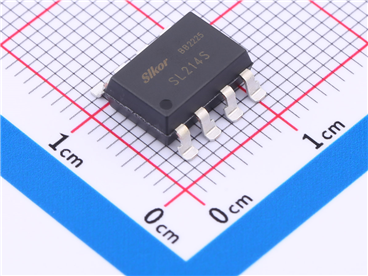
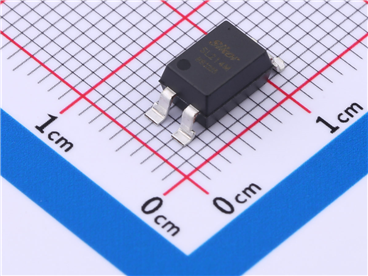
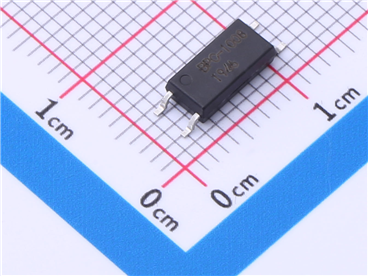
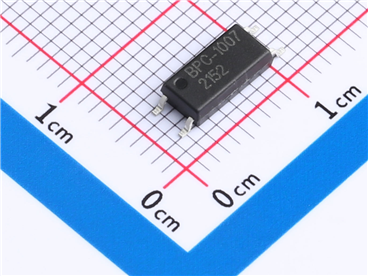
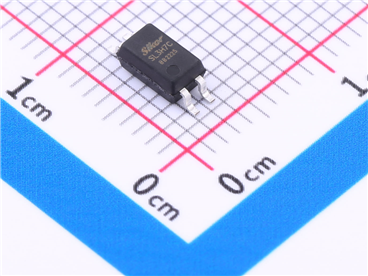

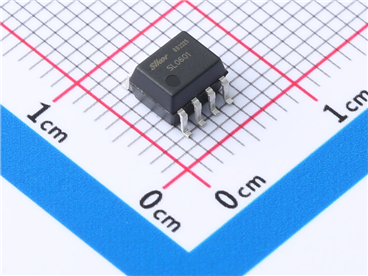


Site Map | 萨科微 | 金航标 | Slkor | Kinghelm
RU | FR | DE | IT | ES | PT | JA | KO | AR | TR | TH | MS | VI | MG | FA | ZH-TW | HR | BG | SD| GD | SN | SM | PS | LB | KY | KU | HAW | CO | AM | UZ | TG | SU | ST | ML | KK | NY | ZU | YO | TE | TA | SO| PA| NE | MN | MI | LA | LO | KM | KN
| JW | IG | HMN | HA | EO | CEB | BS | BN | UR | HT | KA | EU | AZ | HY | YI |MK | IS | BE | CY | GA | SW | SV | AF | FA | TR | TH | MT | HU | GL | ET | NL | DA | CS | FI | EL | HI | NO | PL | RO | CA | TL | IW | LV | ID | LT | SR | SQ | SL | UK
Copyright ©2015-2025 Shenzhen Slkor Micro Semicon Co., Ltd